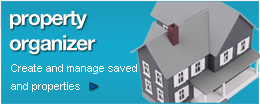When severe weather threatens Westchester, stay informed through weather updates either on the radio, TV or online with the National Weather Service. When power is lost be prepared with a battery-operated radio or crank radio. It’s important to stay tuned to important weather updates and in the event an evacuation of your neighborhood is announced.
County and State traffic conditions
You may want to check on major highway conditions across the county by visting www.511ny.org. This site provides reports on roads across the county as well as state-wide. It details closures, incidents and other helpful traffic and transit conditions.
Important phone numbers
Jot down, and keep in a handy place, important phone numbers well before you lose power or a serious storm arises. Here are some phone numbers you may want to have at your fingertips:
- First and foremost –Do not call 911 for non-emergencies
- An alternative contact number is United Way’s 211 Help Line
- ConEd power outage or gas and electrical service problems: (800) 75-CONED
- NYSEG electricity power outage: (800) 572-1131 (Check outages in your area.)
- NYSEG natural gas power outage : (800) 572-1121
- County Parkways: Call the county police at (914) 864-7700 for the latest county parkway conditions
- Local road conditions: Call your local police or highway department. Look up the numbers now and add them to you list.
- Thruway: (800)-THRUWAY for updated NY state thruway information
- Bee-Line Buses: (914) 813-7777 for bus service status or (914) 995-7272 and press 2 at the prompt, for paratransit status
- Airline arrivals: Call the carrier directly or for real-time flight information go to the Westchester County Airport Web site
- Metro-North Railroad: (800) METRO INFO
- School closings and delays: WFAS storm center, News 12 or WCBS radio
- No heat or no hot water in rental apartments: Call your local building department or, during after hours, the local police department.
Hurricanes
Hurricane Watch
A Hurricane Watch is issued when hurricane conditions are a real possibility for the area within 24-36 hours. What you should do:
- Monitor storm’s progress on radio or TV.
- Get a battery-powered radio and flashlight.
- Make sure you have sufficient canned food, first aid supplies, drinking water and medication on hand.
- Fuel your car.
Residents in low-lying areas should also:
- Plan an evacuation route and destination and be prepared to evacuate upon the recommendation of local officials.
- Know how and when to turn off the water, gas and electricity in your home.
- Secure credit cards and cash. Check your “Go Bag.”
- Make plans to care for your pets because they are not allowed into public shelters for health reasons.
Hurricane Warning
A Hurricane Warning is issued when a hurricane is expected within 24 hours. Begin precautionary action at once. What you should do:
- Follow instructions issued by local officials. They will inform you if you have to evacuate.
- Make arrangements for the elderly and others with special needs.
- Secure outdoor objects or bring them indoors.
- Moor any boats securely.
- Turn off propane tanks.
- If conditions are expected to be severe, protect your windows with boards, shutters, or tape.
- Know who to call if your power goes out.
- Plan an evacuation route and destination.
If you live in a low-lying coastal area, you may be directed to evacuate. If so, comply immediately.
- Make arrangements to stay with friends or family outside the affected area whenever possible.
- Turn off utilities if instructed to do so.
- If necessary, bring clothing, bedding, bathing and sanitary supplies, medications and your “Go Bag.”
Storms and Flooding
Flash floods can strike any time and any place with little or no warning. In flat terrain, distant rain may be channeled into gullies and ravines. During a major rain storm, many of Westchester’s parkways and roadways may become flooded. Observe these flood safety rules. They could save your life.
- Keep alert for signs of heavy rain (thunder and lightning), both where you are and upstream. Watch for rising water levels.
- Know where high ground is and get there quickly if you see or hear rapidly rising water.
- Be especially cautious at night. It’s harder to recognize the danger then.
- Do not attempt to cross flowing water which may be more than knee deep. If you have doubts, don’t cross.
- Do not try to drive through flooded areas.
- If your vehicle stalls in a flooded area, abandon it and seek higher ground immediately.
- During threatening weather listen to commercial radio or TV, or NOAA Weather Radio for Watch and Warning Bulletins.
Snow
In light of the numerous snow storms that passed through Westchester and the surrounding regions last year, residents should take precautions now to prepare for hazardous weather that could include potential power outages, being snowed in at home and other inconveniences caused by vast amounts of snow and ice.
The Department of Emergency Services offers these tips when heavy snow falls:
- Shovel snow in moderation, particularly if you have any medical condition or you do not exercise regularly.
- It is the responsibility of the property owner to clear the sidewalk in front of that property.
- Do not shovel snow from driveways and sidewalks into the street.
- Most fire hydrants are covered by snow. If you can, please shovel out the snow around hydrants near your property.
- Before driving, clear snow from vehicle windows and roofs.
- Check on elderly and disabled relatives, neighbors and friends.
- Do not walk behind plow vehicles; it is difficult for plow operators to see you.
- Be on the look out for falling ice and snow from roofs and gutters.
- A lot of heavy snow and ice has accumulated on roofs. Do not stand under structures that are not well-supported.
- If you have no heat or hot water in rental apartments, call your local building department or, during after hours, the local police.
- Remember to be prepared before your power goes out; it will be too later after it goes out.
Do I call 911 or 211?
Please do not call 911 for non-emergencies, such as information or to complain about snow removal issues. You may call the 2-1-1 helpline for non-emergencies.




